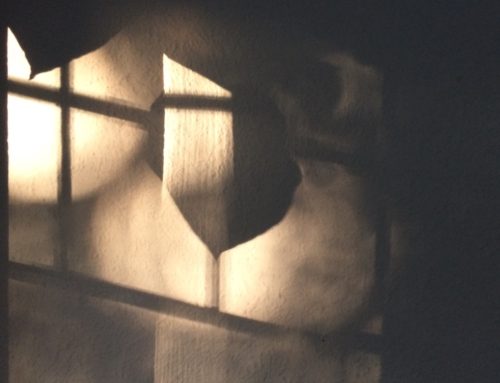I have something juicy I want to share with all of you, but I have been struggling with actually affiliating this information with myself, especially in a professional context. In examining why this has been bumpy for me, I came to realize a few things that I want to discuss here (very briefly, mind you!), before we get to the juicy bits. The subject: patriarchy.
The word “patriarchy” is one I wrestle with because I always feel like it makes men out as “bad”- bad humans, bad members of society, bad people in our history; the oppressive MAN. I have had to do my own personal assessment and dissection of this word over the last 20 years so that I can feel more comfortable using it. This is not a complete discussion of the system of patriarchy by any means, rather here is what I have come to understand so that I can use this word in a productive way. To be sure, there is more to add to this conversation, and I would welcome anyone to do so in the comments section.
The patriarchy is a way to describe the trend in our world of the last 2,000 (or so) years toward favouring traits that are masculine such as success, competition, goal-oriented productivity, growth (namely economic), etc. Furthermore, a patriarchal value system prioritizes the males in a community for their physical strength and intellectual contributions, and in the realms of decision-making, governing, reproductive rights, education, and economics, to name a few. In short: the men hold the power. It was a long and complicated road to get here, which, while interesting, is not what I want to discuss here. And there are so many millions of men in the world who would rather we didn’t allocate all of this value to men over women, and who genuinely seek balance between the masculine and feminine. We cannot confuse the controlling, ego-maniacal, out of balance men in the world who fully subscribe to and can’t even comprehend the existence of a patriarchal structure because they are so steeped in the benefits of this system, with the men who want equal voices and equal rights for men and women across the globe, and who see the disparity. And we cannot confuse individual men with “the patriarchy”.
Now, with the concept of patriarchy on the table, what would be the opposite? I think it would be a global culture that also values feminine ways of living such as slowing down to cultivate connections and community; one that places less of an emphasis on doing and more of an emphasis on being. We would appreciate beauty and good design over a structure built for function alone. We would spend more time with our emotions and would value the information we can gain from paying attention to how we feel, rather than just living from an analytical mind-set. We would enjoy our human existence more and take the focus off of success, productivity, being the fastest and coming out on top. We would place a value on how others are doing just as much as we place value on how we ourselves are doing as individuals. Lastly, but not least: we would listen to our bodies and value pleasure, an experience that we as humans know in a very unique way.
Now I am finally getting to the point: I watched the video linked below just a few weeks ago for the first time. I wanted to share it far and wide, but I caught myself feeling shy and wondering if it was inappropriate to share. I have been sitting with this question of “why do I, a woman who spends everyday working to help women connect more deeply to their own emotions and their own pleasure, feel like it would be ‘inappropriate’ to share a video about female anatomy and pleasure?!”
My answer is simple: internalized patriarchy. In spite of my own ongoing cultivation of pleasure in my life (ranging from finding a beautiful flower bouquet for my table to feeding myself and my son delicious food, to delighting in sexual pleasure with my beloved) I also struggle with feeling like it is inappropriate to discuss female pleasure. And I must note, that as I write that sentence it makes my blood boil! Why does a man get to openly and freely discuss his sexual pleasure with the world and it is not okay for a woman to do so? And why, as this video notes, did we not fully understand the anatomy of the female clitoris until the last quarter of a century? And why are young people not taught about how to engage both a man and a woman in sexual pleasure? A man can sexually penetrate a woman and have robust physical pleasure, but if the woman’s body is not attended to equally she will very likely get close to 0% of the pleasure he is getting. And frankly, when that happens, it just feels like these female bodies of ours are perceived to be here just for the man’s use. Certainly, that is how many men view us, and sadly, what many women have also come to believe. And I have to say, that when sexual intercourse is happening and only one party is getting pleasure, it is hard not to feel used, not cared for, not valued, disrespected, and in more extreme circumstances possibly even like you have been raped. Women, I know many of you can relate.
When we only value the masculine, we fail to see the more finely tuned, the more delicate, the more sensitive feminine aspects of life. This is very literally true, and quite symbolic I might add, in the realm of sex and sexual anatomy. When a man cannot slow down long enough to connect with his sexual partner and help her access her own pleasure, both parties are missing out. You will likely be amazed when you watch the Ted Talk below and see the extent of the female clitoris and begin to ponder for yourself the concept of female pleasure. It is time we slowed down, paid more attention to the intricacies of all that is feminine in our world, and actually allow ourselves to feel the nuance of life that is evident when the energies of masculine and feminine (and yes, males and females too) actually spend time dancing together, feeling one another, and attuning to the beauty that comes from balance.
So what happens to our world when we start to openly discuss female pleasure? What happens to us internally when we push ourselves to see and vocalize that women have been overwhelmingly neglected (and outright abused) in our sexuality for centuries? How might both men and women be transformed by our engagement with female pleasure?
Finally, here is a little educational short for you. Enjoy!






